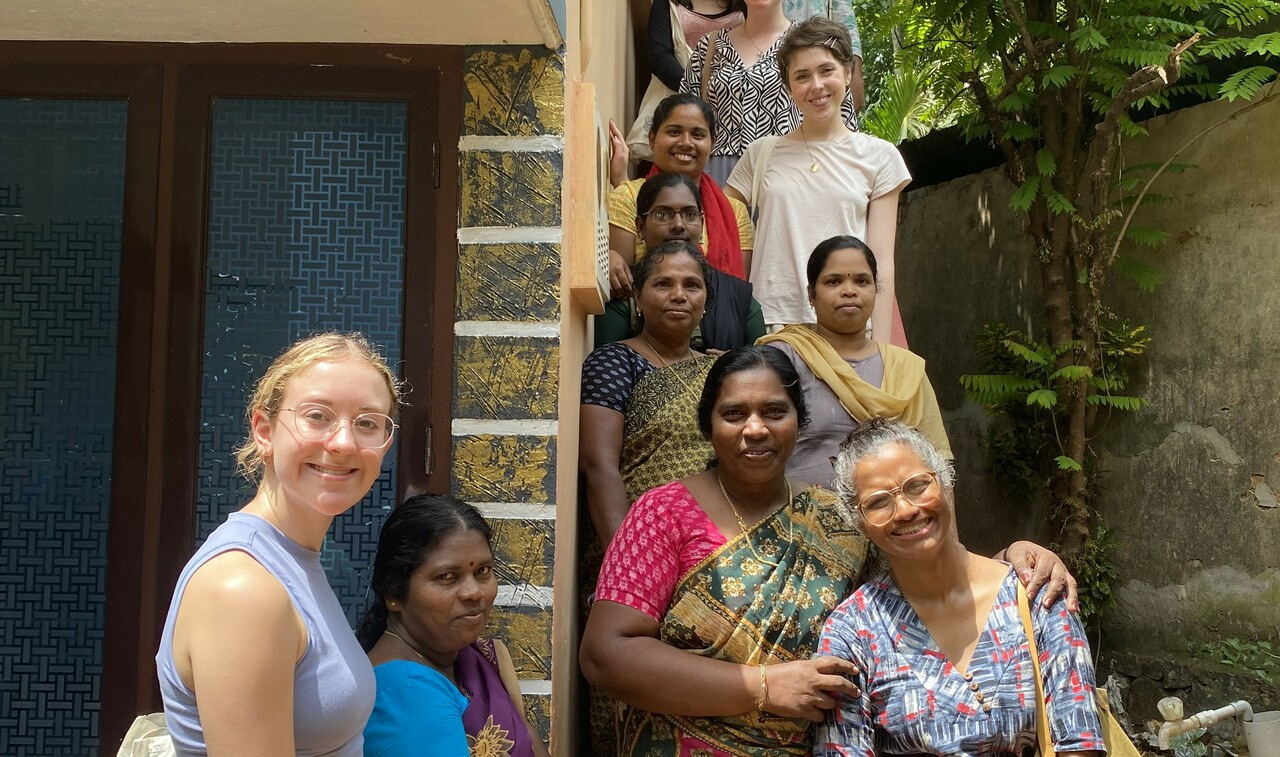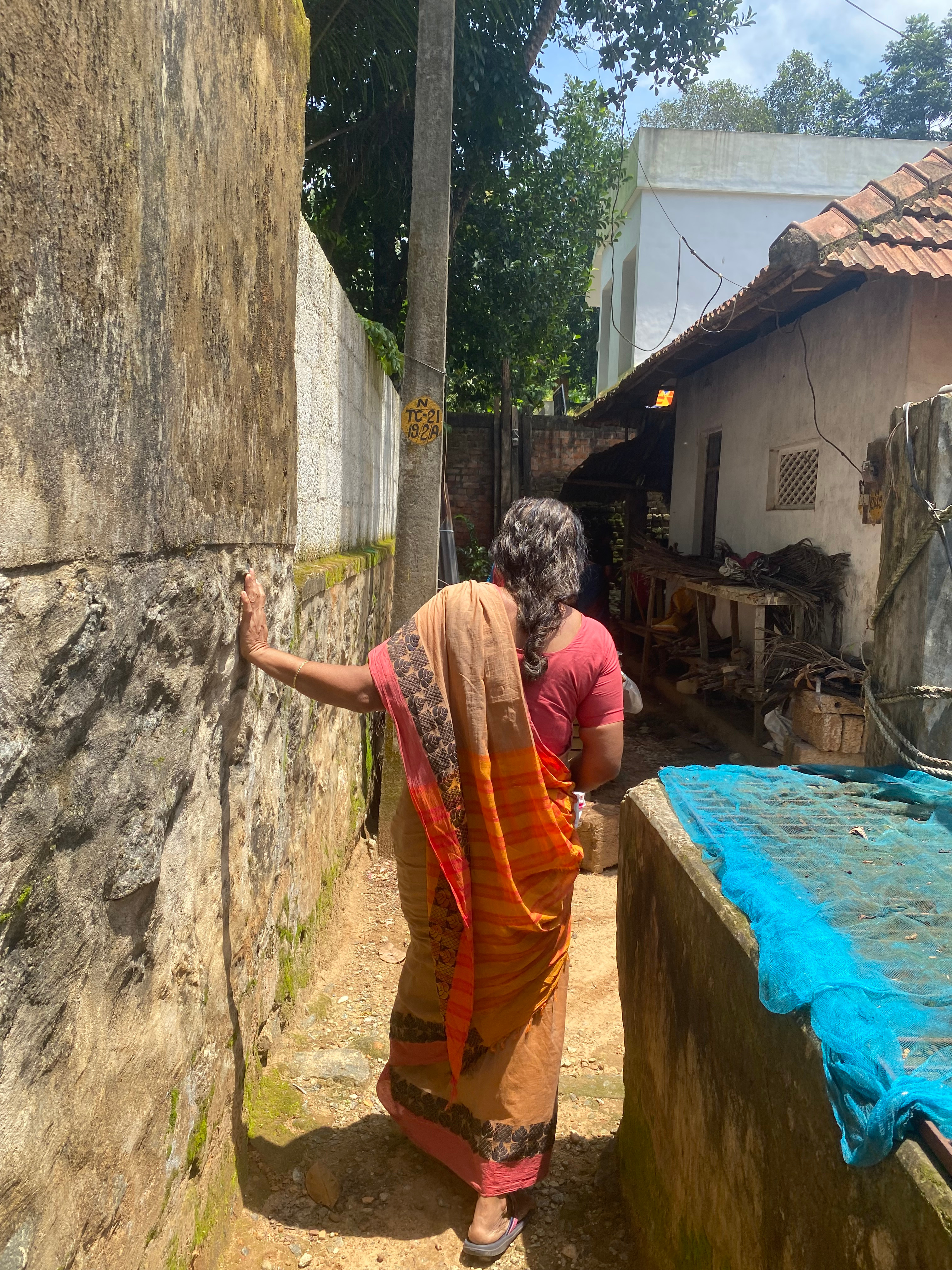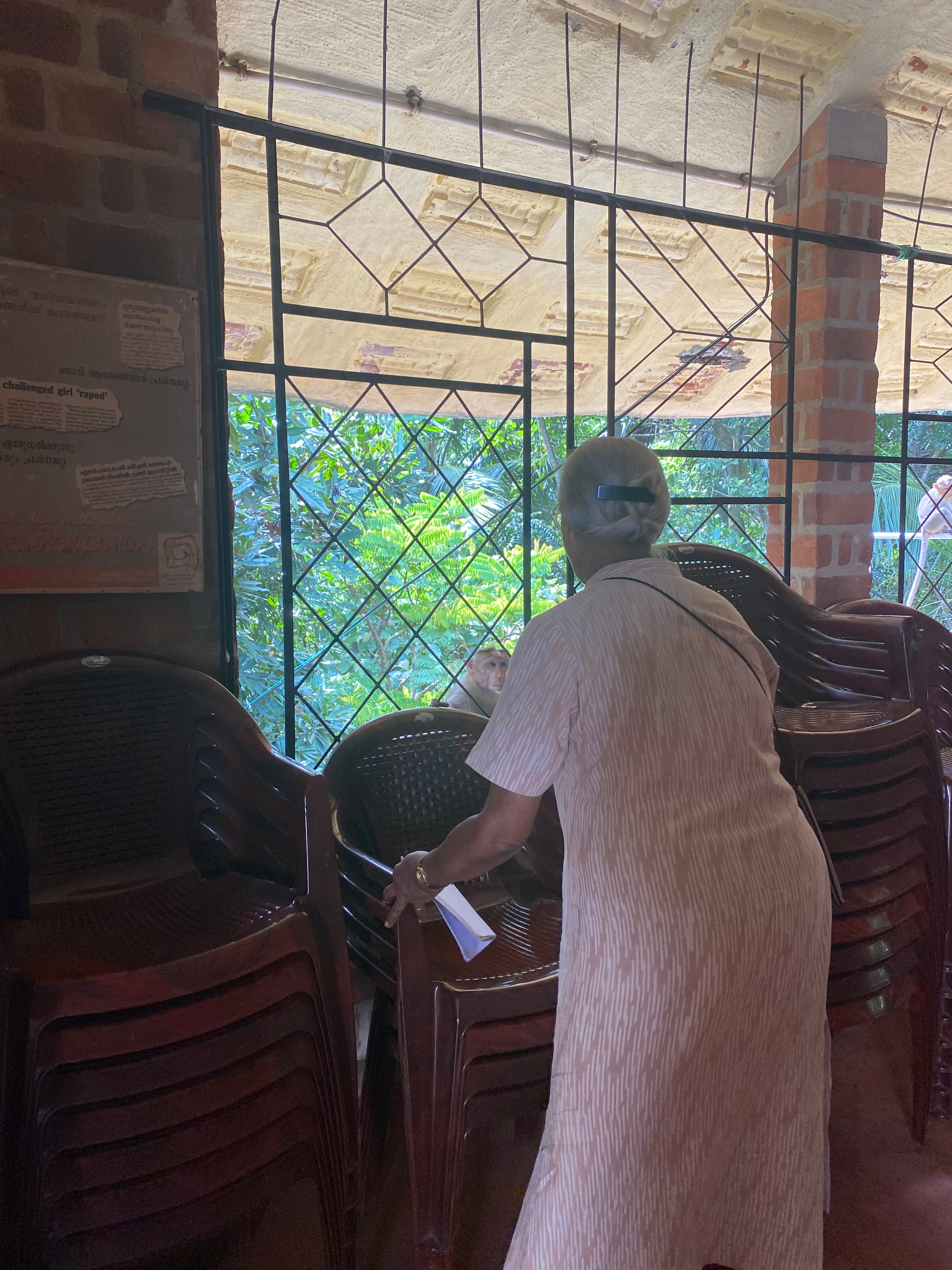SEWA’s Sisters

"Chechi" "Chetto"
You'll be please to know that I've learnt two more Malayalam words since my last post. "Chechi" meaning sister and "chetto" meaning brother.
My favourite cultural difference travelling from England to India is hearing everyone call each other brother and sister. It couldn't be farther from how people interact with strangers in London which is a grunt if you're lucky or more likely a push or a shove.
Since arriving in Kerala I have been treated with nothing but kindness and it's so refreshing to be able to smile at someone as you walk down the street without people thinking you're mad.
I learnt the meaning of these words from week two's project with SEWA. In India, people are normally referred to by their relation in age to yourself, i.e. your elder would be referred to as auntie and someone younger than you would be girl or boy. However, in SEWA everyone is called chechi despite their age or status.

SEWA (Self Employed Women’s Association) was founded in 1972 by Ela Bhatt who recognised that a large number of women were engaged in informal and unorganised sectors, lacking job security, benefits, and recognition.
Currently, over 92% of the India’s population work in the informal sector.
Thus, SEWA was established - a trade union seeking to address the needs of these women and provide them with a platform for their voices to be heard.
SEWA currently has 3.1 million members across 23 Indian states with 35,000 in Kerala alone. The organisation has successfully created a network of these women, helping them gain access to financial services, healthcare, childcare, insurance, legal aid, and training.
SEWA also provides both income opportunities to women while preserving the rich craft clusters across India.
.jpg)
Our project with SEWA consisted of trips to three different craft sectors, learning about reed weaving, paper making and pottery. However, my main takeaway from this experience was the immense dedication and hard work that the women at SEWA have invested in supporting others in the informal sector.
I have never witnessed such selfless acts of sisterhood, where organisers run the organisation purely out of passion and a commitment to feminism. It has inspired me to reevaluate the field in which I want to work in the future. I can only hope to follow in the footsteps of such incredible women.
Nalini Nayak, SEWA Kerala's founder, was such an inspiration. Spending only a few days with her influenced a total reevaluation of my life and the way I interact with the world around me. She is pictured below having a stern word with a very cheeky monkey.

Overall, SEWA was such a joy to work with and I feel so lucky to have been able to meet such an incredible group of women.





Please sign in
If you are a registered user on Laidlaw Scholars Network, please sign in
Cheeky monkey! So lovely Grace
Loved sharing this experience and learning from the incredible women at SEWA!
Such an incredible experience!
So much to learn from the amazing women at SEWA!
It was a cheeky monkey :D Thank you so much for sharing so beautifully about your week with SEWA. You have a way with words, Grace.